Plenaries and Industry Panel
Tuesday, 9 September 2025 h. 09.30 – 10.30 | Teatro del Sole
New problems in signal processing for mobile communications
Prof. Erik G. Larsson, Linköping University, Sweden
EURASIP Fellow inaugural lecture
Abstract
I will start with a retrospect of how signal processing has made modern mobile communications, and especially MIMO in 5G, possible. While this technology is already very good, several challenges remain: especially, coverage holes, and difficulties to send multiple streams to multiple-antenna users because of insufficient channel rank. Perhaps the ultimate solution is distributed MIMO (also known as cell-free massive MIMO). But while this is at heart a powerful technology, unless the phase oscillators between different access points are mutually locked, achieving accurate phase-alignment for coherent multiuser beamforming on downlink is difficult. Another emerging technology is to deploy swarms of network-controlled repeaters, which could be built and installed cheaply, but require new types of coordination and give rise to new signal processing problems. I will illuminate the fundamental limits of these emerging technologies, and the signal processing tools needed to understand and optimize them.
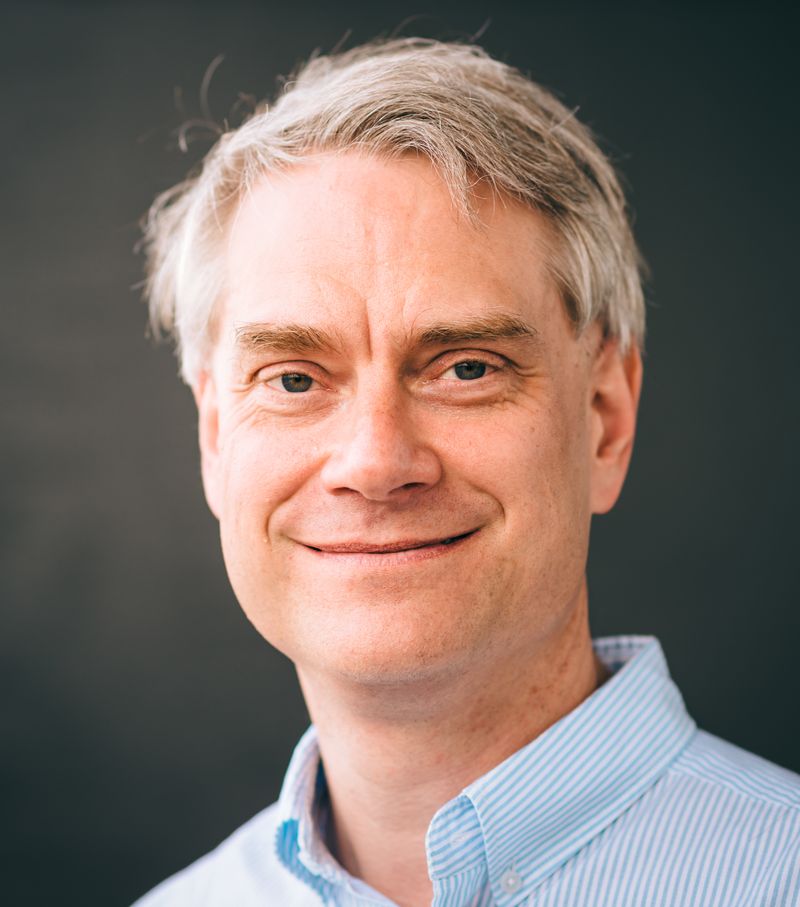
Erik G. Larsson is Professor at Linköping University, Sweden, and a Fellow of the IEEE and EURASIP. He co-authored Fundamentals of Massive MIMO (Cambridge, 2016) and Space-Time Block Coding for Wireless Communications (Cambridge, 2003). Recent service includes membership of the IEEE Signal Processing Society Awards Board (2017–2019), the IEEE Signal Processing Magazine editorial board (2018–2021), and the IEEE Transactions on Wireless Communications steering committee (2019–2022). He received the IEEE Signal Processing Magazine Best Column Award twice, in 2012 and 2014, the IEEE ComSoc Stephen O. Rice Prize in Communications Theory 2015, the IEEE ComSoc Leonard G. Abraham Prize 2017, the IEEE ComSoc Best Tutorial Paper Award 2018, the IEEE ComSoc Fred W. Ellersick Prize in 2019, and the IEEE SPS Donald G. Fink Overview Paper Award in 2023.
Wednesday, 10 September 2025 h.14.20-15.10 | Teatro del Sole
Technologies and Industrial Trends in Modern Signal Processing
Dr. Michele D’Urso, Leonardo SpA, Rome, Italy
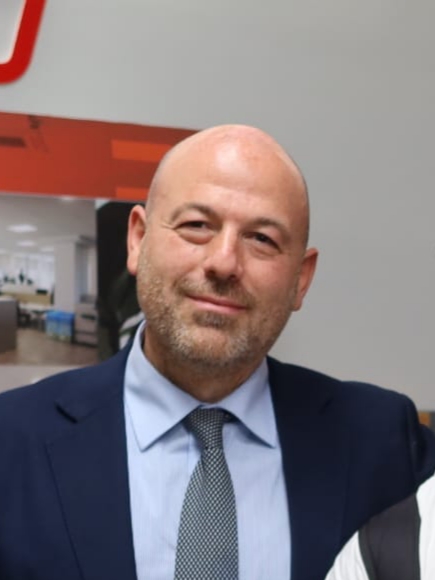
Dr. Michele D’Urso has an extensive employment history spanning academia, research, and industry. He received the Master Degree in Telecommunications Engineering, Faculty of Engineering of the “Federico II University” of Naples in 2002, and the PhD in Electronic and Telecommunications Engineering, Faculty of Engineering of the “Federico II University of Naples” in 2005. Below is a summary of his experience:
- Academic and Research Roles:
- Associate Researcher at Federico II University of Naples (2002).
- External collaborator at IREA-CNR Naples (since 2005).
- External research collaborator at the Mediterranean University of Reggio Calabria (since 2004).
- Associate Professor at the Mediterranean University of Reggio Calabria (2008).
- Industry Roles:
- Worked at Schlumberger-Doll Research, USA (2004-2005).
- Joined SELEX Sistemi Integrati in 2008, holding various leadership roles:
- Head of Giugliano Research Center (2009-2010).
- Head of Innovation Team Operating Unit (2010-2012).
- Head of Analysis of Sensors and Innovative Systems Operating Unit (2012).
- Head of Innovative Solutions, Applied Electromagnetics, and Sitings Operating Unit (2013-2016).
- Program Manager for European and national projects, including D-BOX, PON NARMA, PON GREEN, and S4E Smart City projects.
- Leadership at Leonardo S.p.A.:
- Head of Manufacturing and Supply Chain Production Lines for the Fusaro site (2016-2019).
- Global Manager of the Fusaro site (since 2020).
- Manufacturing & Supply Chain Business Partner for Air & Land Systems and Naval Systems (since 2020).
- Director of Manufacturing and Supply Chain Production Lines for the Electronics Division (since August 2023).
- Director of Engineering, Technology & Innovation for the Electronics Division (effective September 2024).
Dr. D’Urso has consistently contributed to innovation, research, and development in telecommunications, radar systems, and manufacturing processes.
Thursday, 11 September 2025 h.14.20-15.10 | Teatro del Sole
Trusted Pixels: Charting the Role of Images in the AI Age
Prof. Mauro Barni, University of Siena, Italy
Abstract
The AI revolution and the widespread adoption of advanced generative models are profoundly altering the role of images and other media within our society, with a steady decline in the trust traditionally placed in images as faithful and objective representations of reality. The initial response to this shift was (and still is) a vigorous pursuit of tools capable of discerning real from synthetic images, in an effort to establish whether an image can be trusted or not. This has given rise to a new field, broadly known as multimedia forensics, which has attracted increasing interest from researchers, with a strong focus on the development of methods for distinguishing authentic and fake images (whatever this may mean). In this speech, I will argue that as AI technology evolves, the distinction between real and AI-generated images will increasingly become an ill-posed problem, and that the implications of the AI revolution are likely to be far more profound than currently anticipated. This will compel researchers to recalibrate their objectives to better answer the challenges set by the AI media revolution. Such a recalibration will be essential to adequately address the challenges presented by the AI-driven media landscape, enabling us to understand and potentially guide the role that images and other media play in supporting a healthy progress of our society.
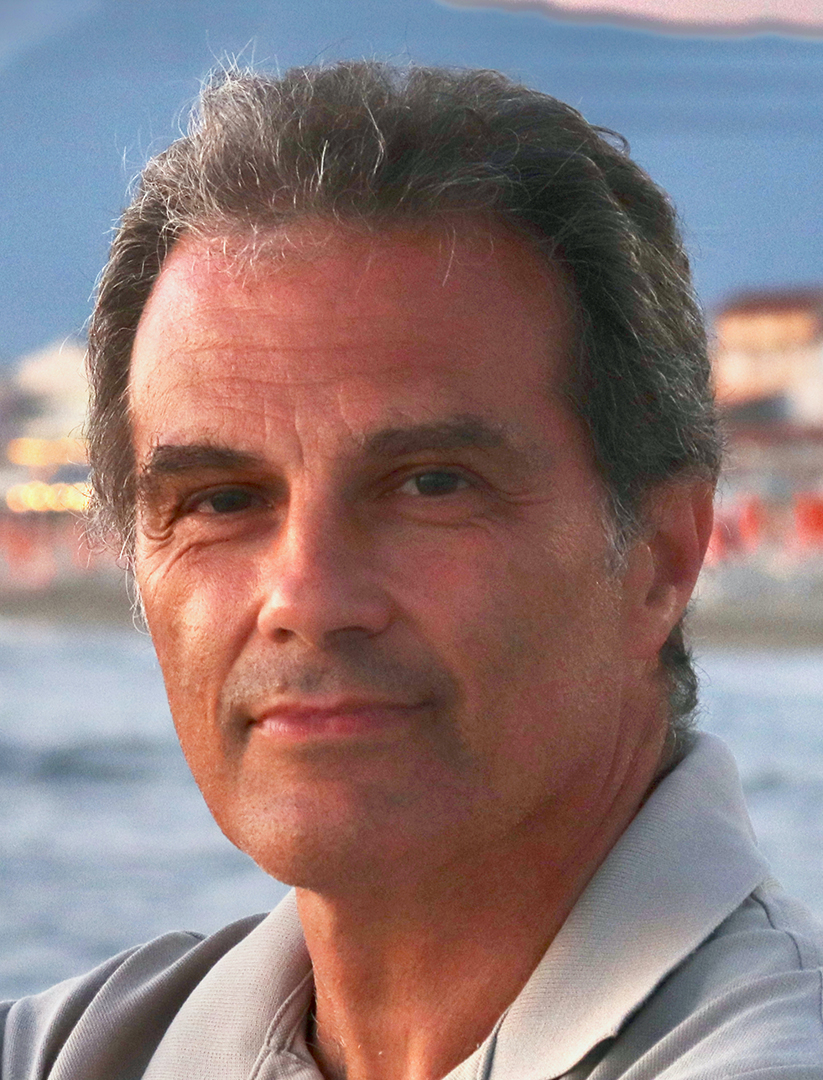
Mauro Barni is full professor at the University of Siena, where he funded the Visual Information Processing and Protection group (VIPP). Throughout his career he has been studying the application of image and signal processing for security applications. His current research interests include multimedia forensics, adversarial machine learning and DNN watermarking. He published about 350 papers in international journals and conference proceedings. He participated to several projects funded by the Italian Ministry of University and Research, the European Commission, DARPA and AFRL on diverse topics, including digital watermarking, information security, signal processing in the encrypted domain, multimedia forensics, machine learning and AI security. He has been the Editor in Chief of the IEEE Transactions on Information Forensics and Security for the years 2015-2017. He was the funding editor of the EURASIP Journal on Information Security. He has been the chairman of the IEEE Information Forensic and Security Technical Committee (IFS-TC). He was the technical program chair of ICASSP 2014. He was appointed DL of the IEEE SPS for the years 2013-2014. He is the recipient of the Individual Technical Achievement Award of EURASIP for 2016. He is a fellow member of the IEEE, EURASIP and the AAIA.
Friday, 12 September 2025 (Industry panel) h. 09.00-10.00 | Teatro del Sole
AI for Industrial Applications: Hope, Hype, or Risk ?
Abstract
A great deal of attention is being devoted by professionals as well as by the general public to AI as a replacement of humans. Less information is disclosed concerning “real” applications of AI in Industry. The aim of the panel is to present and discuss the present situation and the perspectives in the field, with a special view on the possible advantages and threats of an ever-growing AI-based approach.
Participants:
Petros Boufounos, Mitsubishi Electric Research Laboratories;
Lu Lei, Huawei;
Domenico Angotti, Open Fiber;
David Sadek, Thales.
Moderator:
Marco Luise, University of Pisa
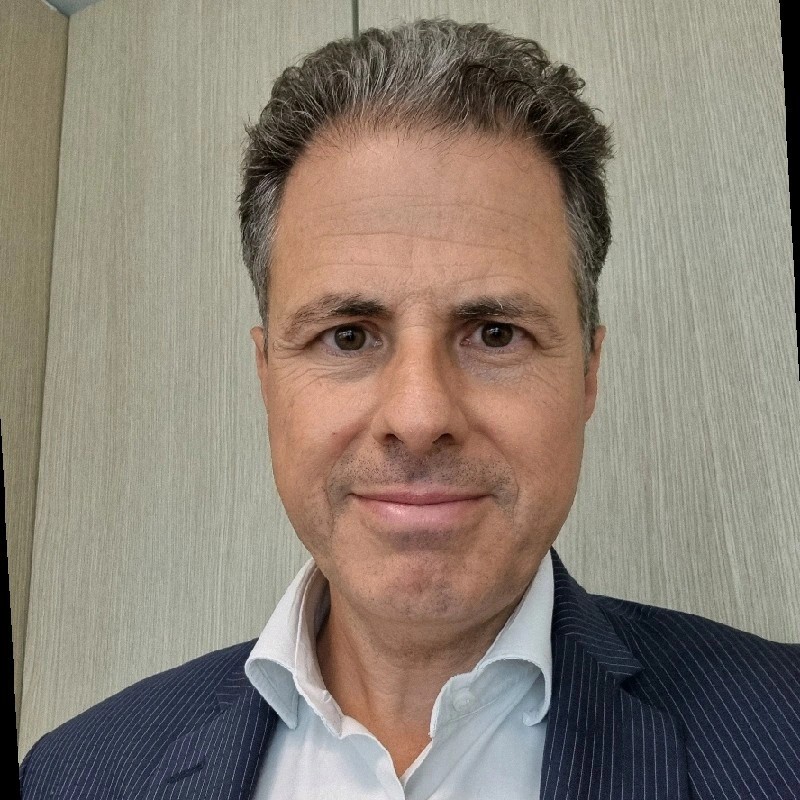
Open Fiber, Head of Network Architecture, Access Engineering and Governance
Domenico Angotti has 30 years experience and sound track record on Italian and international Mobile and Fixed Telco management. He received the Master Degree in Telecommunications Engineering, Faculty of Engineering of “La Sapienza” of Rome (Italy) in 1995.
His past and current activities include network operations start-up, development and consolidation, delivering wide network transformation programs and solutions, corresponding to marketing services requirements, reducing operational costs and improving quality, bringing a robust and deep technical knowledge and a proven sensibility for technology and innovation, building lasting relationships with vendors, customers and partners. Among his core competences: Technology and Service Management, Network Planning & Engineering, Team Management, Budget Planning & Control, Project Management, Operation & Managed Service, Turn Key & Start-Up projects.
He served as Radio Network Director, Planning & Control Network Manager in Tim Brazil for 10 years, and is current role is Head of Network Architecture, Access Engineering and Governance in Open Fiber, the Italian leading wholesale-only FTTH company.
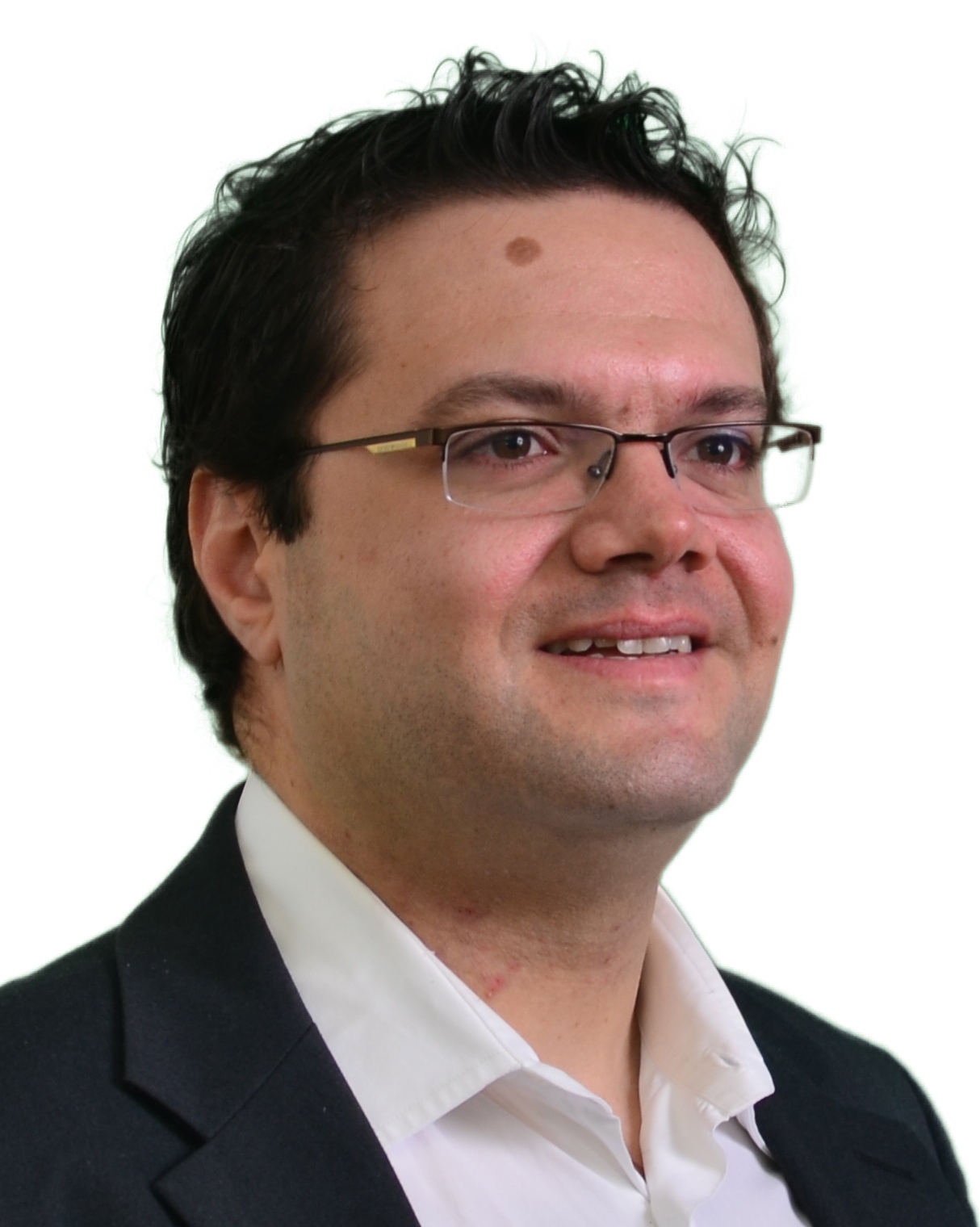
Petros T. Boufounos is a Distinguished Research Scientist and a Deputy Director at Mitsubishi Electric Research Laboratories (MERL). Dr. Boufounos completed his undergraduate and graduate studies at MIT. He received the S.B. degree in Economics in 2000, the S.B. and M.Eng. degrees in Electrical Engineering and Computer Science (EECS) in 2002, and the Sc.D. degree in EECS in 2006. Between September 2006 and December 2008, he was a postdoctoral associate with the Digital Signal Processing Group at Rice University. Dr. Boufounos joined MERL in January 2009, where he has been heading the Computational Sensing Team since 2016.
Dr. Boufounos’ immediate research focus includes signal acquisition and processing, computational sensing, inverse problems, and learning. He has over 40 patents granted and more than 10 pending, and more than 100 peer reviewed journal and conference publications in these topics. Dr. Boufounos was the general co-chair of the ICASSP 2023 organizing committee and a regional director-at-large in the IEEE Signal Processing Society’s Board of Governors. He has also served as an Area Editor and a Senior Area Editor for the IEEE Signal Processing Letters, an AE for IEEE Transactions on Computational Imaging, and as a member of the SigPort editorial board and the IEEE Signal Processing Society Theory and Methods technical committee. Dr. Boufounos is an IEEE Fellow and an IEEE SPS Distinguished Lecturer for 2019-2020.
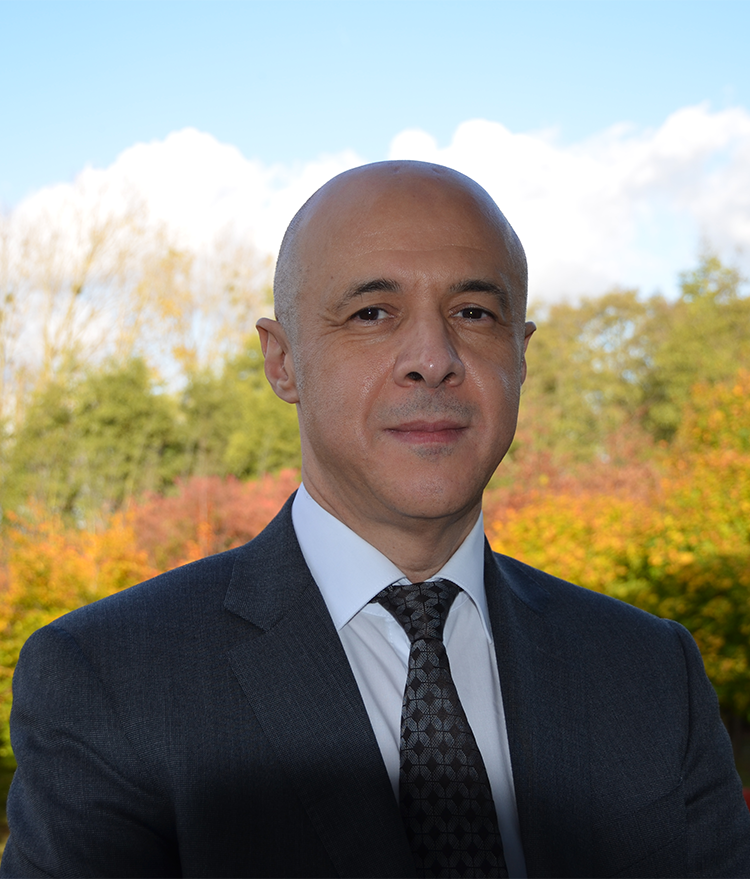
Dr David Sadek
VP Research, Technology & Innovation
CTO Artificial Intelligence & Quantum Computing
Thales
David Sadek is VP Research, Technology & Innovation at Thales, notably in charge of Artificial Intelligence and Quantum Computing. He was Chairman of the Executive committee of the French national industrial program on AI (Confiance.ai) and, previously, SVP Research at IMT (Institut Mines-Télécom) and VP R&D at Orange.
Doctor in Artificial Intelligence, he created and ran for more than fifteen years at Orange the R&D teams on intelligent agents and human-machine dialogue. His research work led to the design and implementation of the first worldwide technologies of conversational agents, as well as to the inter-agent communication language standard ACL. He also directed several industrial programs of technology transfer and service deployment. He was Chairman of the evaluation committee of the French national research agency (ANR) program “Digital Contents & Interactions”. He is or was member of numerous national and international research and innovation committees, such as the Board of the French national alliance on digital sciences (ALLISTENE), and the Scientific councils of INRIA and of the CNRS institute on Information and communication science and technology.
Dr Sadek was a leader of FranceIA, the French national strategy on Artificial Intelligence, and France representative within the G7 Innovators. He was also co-founder of the Ethics commission (CERNA) of ALLISTENE and member of Think Tank “Comité 21 Prospectives” dealing with the implementation of the SDGs (Sustainable Development Goals). He is also member of ONE AI, the OECD Network of Experts on AI, and was member of GPAI, the Global Partnership on AI.
During nearly ten years, Dr Sadek was Orange Fellow. He got France Télécom Award for Best Technology Innovation, Orange Award for Best Service Innovation, European Customer Relationship Forum Award, and Blondel Medal in Artificial Intelligence and Cognitive Science.
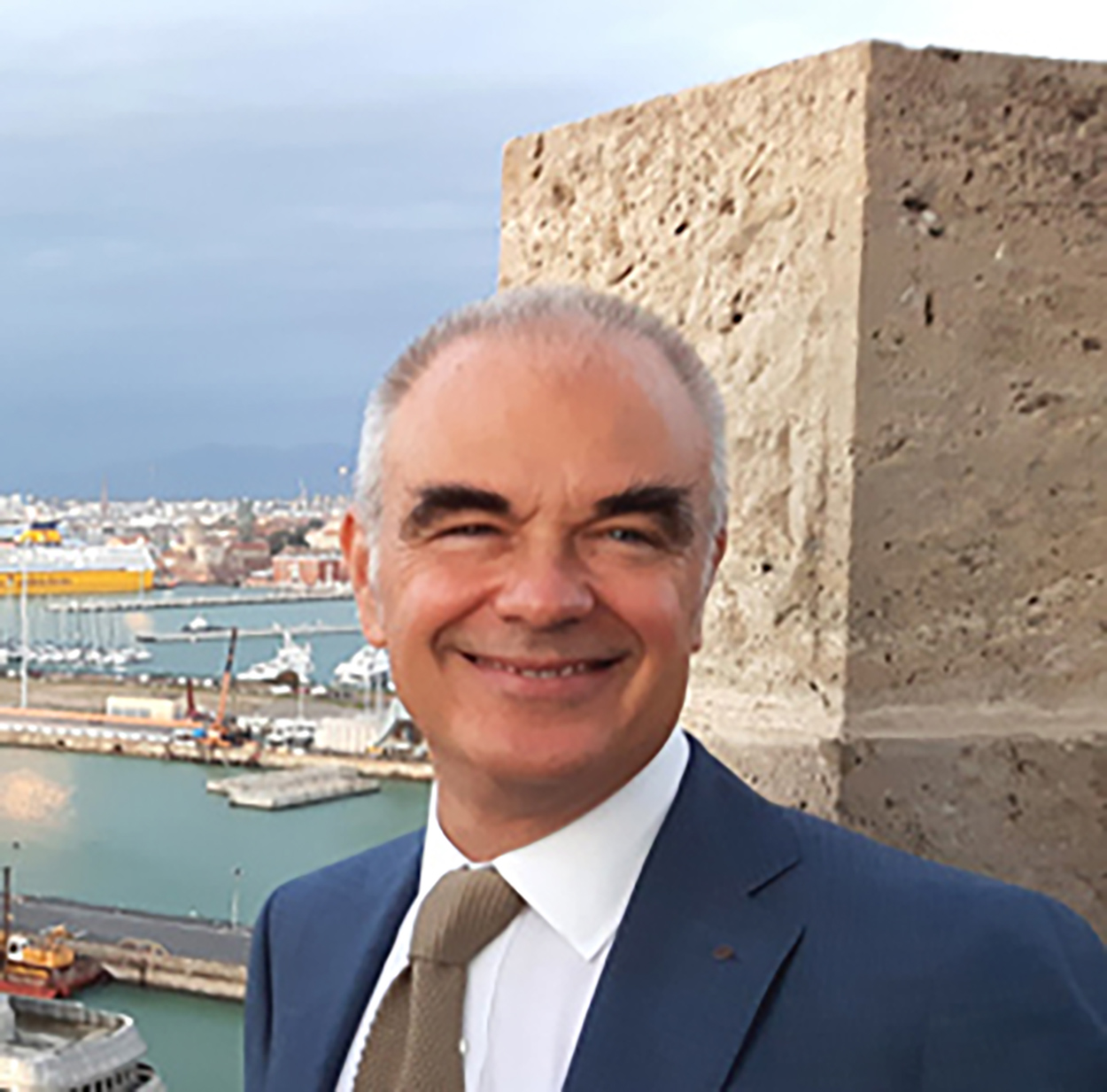
Marco LUISE is a Professor of Telecommunications at the University of Pisa and at the University of Florence, Italy, and was in the past a Research Fellow of the European Space Agency. He’s chaired a number of scientific conferences, including ASMS/SCPS in 2014, as well as the flagship IEEE conference ICC 2023 in Rome, Italy. He has been the Chairman of the URSI‘s Commission C, is a member of the International Committee on Global Navigation Satellite Systems (ICG) of the UNO and has contributed to establish the Association ToscanaSpazio, of which he was the first Chairman. He is also the co-founder and Scientific Consultant of the engineering company WISER srl in Leghorn, Italy www.wiser.it. The author of more than 350 publications and a leader of several research projects, his main interests lie in the broad area of wireless and satellite navigation and communications.

